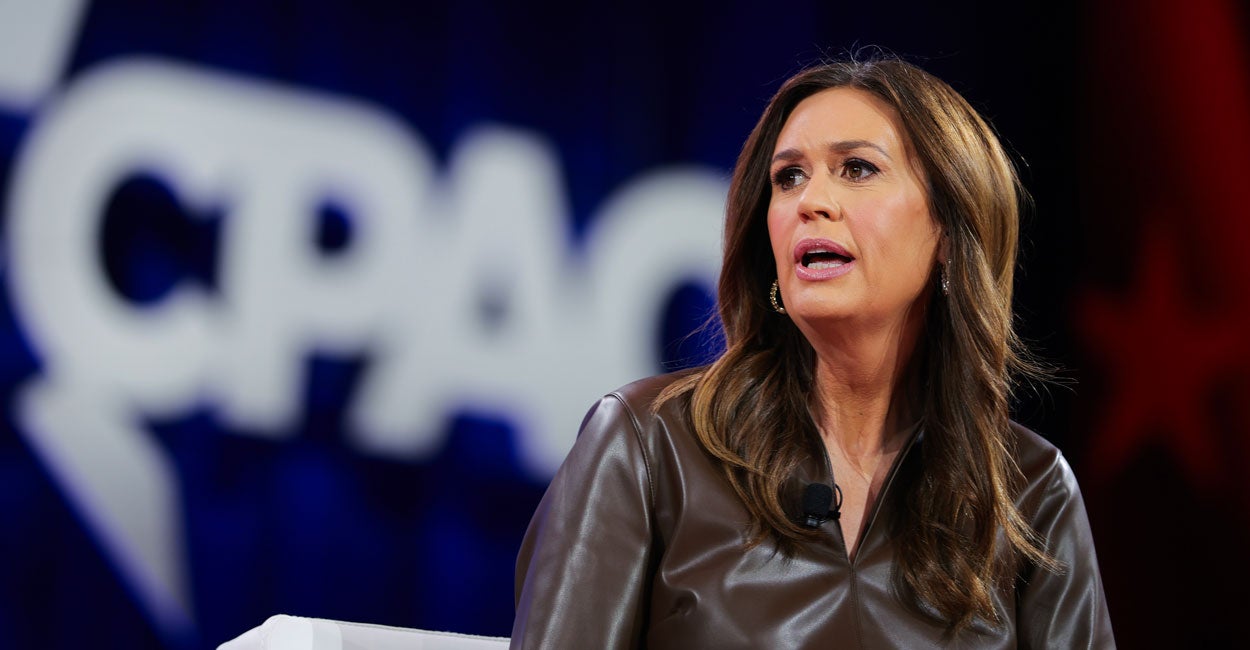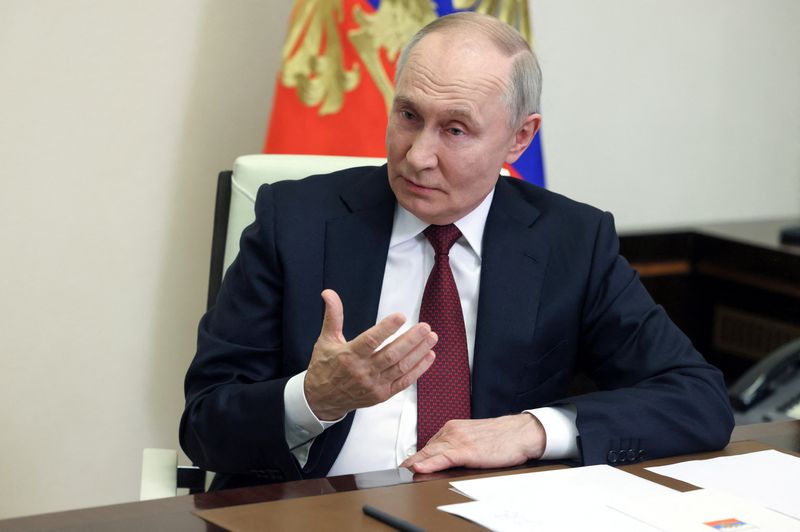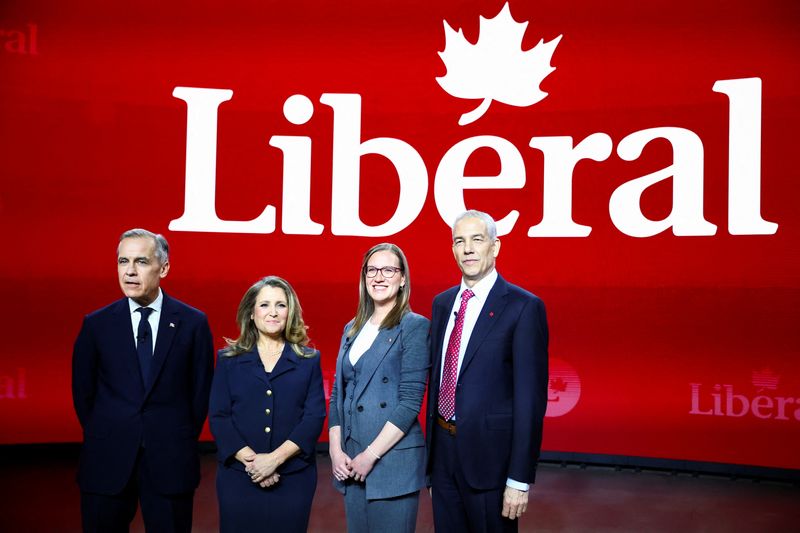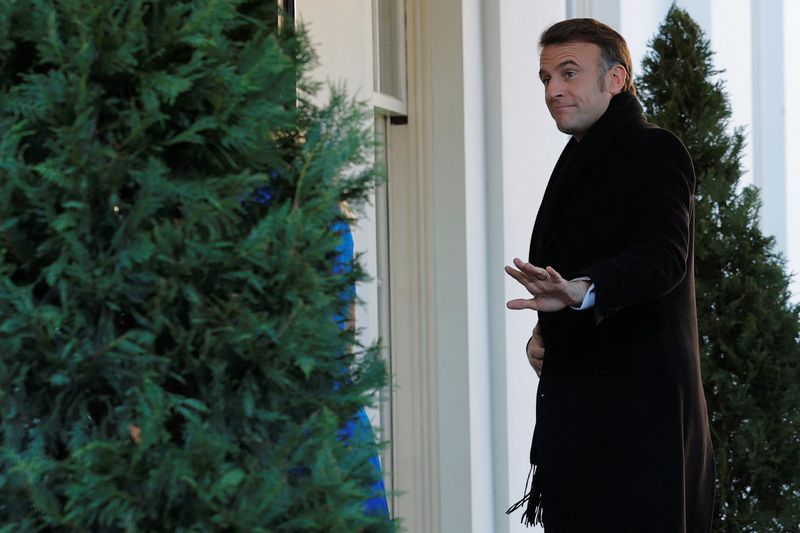USAID freeze opens door to Russian influence in Eastern Europe
Cuts to aid from Washington could dramatically strengthen Moscow’s hand in the region and jeopardize Europe's security interests.
BRUSSELS — United States President Donald Trump’s international aid freeze will evaporate funding for civil society groups across Eastern Europe, undercutting pro-democracy initiatives and creating an open goal for Russia to boost its hold on the region.
The Trump administration’s steps toward dismantling the U.S. Agency for International Development (USAID) — pausing most existing foreign aid for 90 days pending review and placing nearly all its employees on paid leave — directly affects ongoing humanitarian and development projects worldwide.
The effects will be particularly profound in Europe, where USAID pledged $17.2 billion worth of aid in 2023, the lion’s share of which went to Eastern European countries bordering Russia.
The money, equivalent to 40 percent of the agency’s total aid commitments, is used to fund projects ranging from democratic reforms to energy infrastructure and disease prevention.
For countries like Armenia, Georgia and Ukraine, where Russia’s shadow looms large, analysts have warned that cuts to aid from Washington would dramatically strengthen Moscow’s hand and reinforce the narrative of unreliable Western partners.
“This move undermines confidence in the U.S. and trust in democracy,” said Richard Giragosian, director of the Regional Studies Center, an independent think tank based in Armenia. “It also means that the U.S. is neglecting the soft power capable of countering Russian narratives.”
Ultimately, he added, “the freeze of USAID funds only makes authoritarian governments happy.”
Russia is already present in these countries, said Tinatin Akhvlediani, a research fellow at the Centre for European Policy Studies, adding that losing foreign funding will only strengthen its malign influence. “The Kremlin will continue to build this narrative that these countries are alone, that the West is abandoning them, that the U.S. and Western countries are not strong allies.”
‘Catastrophic’
In Belarus, the aid freeze poses an existential threat to NGOs, which have long been in the crosshairs of strongman leader Alexander Lukashenko’s regime.
“It happened so fast — the results were catastrophic for us,” said Yuliya Ralko, international secretary of RADA, a Belarusian umbrella organization of youth groups that has been operating in exile since 2021.
Ralko said RADA “had to cut salaries by 50 percent” and severely curtail educational projects that aim to “minimize the gap between Belarusian and European youth” and counter Minsk’s attempts to “turn young people away from Europe and toward Russia.”
Around half of the NGO’s 2025 budget was funded by USAID grants. “I hope the U.S. government will change its mind because I don’t know how long we can go on volunteering like this,” Ralko said.
The impact of the USAID cuts is being felt across the region.
The agency pledged $16.8 billion in aid to Eastern Europe in 2023. The bulk of it — $16.4 billion — went to Ukraine, followed by Moldova at $211.5 million and Georgia at $91.4 million. Most of the aid was funneled into projects to strengthen civil society and the rule of law and to boost economic growth; emergency relief accounted for nearly $1 billion, and almost half a billion was devoted to energy infrastructure.
While it is not yet clear how much of this aid has already been cut or is at risk, the uncertainty is already wreaking havoc.
In Ukraine, dozens of media outlets, as well as organizations involved in everything from fighting for judicial reform to battling corruption and helping war veterans, have had to either reduce or completely halt operations. They are yet to find out if their programs will be renewed after the 90-day audit ends in mid-April.
In Armenia, USAID pledged $8.5 million to support more than 100,000 ethnic Armenians who were forcibly displaced following the 2023 Azerbaijan offensive.
While USAID Armenia clarified that basic humanitarian assistance would not be affected for the time being, a host of other initiatives — including programs to guarantee election transparency, strengthen the media landscape and improve the energy infrastructure — are at risk. The agency committed $71.7 million to the country in 2023.
In Georgia, pro-Russian ruling party Georgian Dream was quick to capitalize on the aid freeze to further restrict the operations of civil society groups.
“The worldwide USAID scandal … has made it obvious that we should fully reclaim our country,” Georgian Dream party chair Mamuka Mdinaradze said.
“Georgia is already in a troubled situation because the government has adopted the so-called foreign agents law, which already targets and curbs all the democratic movements, civil society and free media,” said Akhvlediani of CEPS. “Cutting U.S. funds punishes all the democratic movements in the country even further.”
Giorgi Gogua, the founder of Project 64, a multimedia startup producing explanatory journalism in Georgia, said USAID money made up around 40 percent of its 2025 budget.
But now the company’s future is in doubt.
“This was our startup capital, which as it turned out, we don’t have anymore,” Gogua said. “If we can’t find a solution, we’ll be forced to stop our operations, at least partially …. So far we haven’t been able to pay our staff at the end of last month.”
Gogua has been working to find new donors, but with the Georgian government planning to adopt more restrictive laws that would ban foreign funding for media altogether, those cash streams are unlikely to materialize. This would hit independent media outlets hard, especially online media that struggle to commercialize their work due to the small market, and that rely almost entirely on foreign cash to operate.
“At this point, we don’t have expectations that USAID funding will continue. We’re speaking to European donors to help us with emergency funding and fill the financial gap,” he added.
‘EU cannot fill the gap’
The EU needs to step in and fill the vacuum by providing funding for civil society and humanitarian groups, the Regional Studies Center’s Giragosian argued, while noting that Brussels is “notorious for moving very slowly, it’s very bureaucratic.”
The EU is already a major aid provider to the region. In 2023 the bloc’s member countries disbursed €19.6 billion to six countries in the Eastern neighborhood — Ukraine, Georgia, Azerbaijan, Moldova, Belarus and Armenia — either bilaterally or through EU institutions.
Yet replacing the U.S. funding would require mobilizing millions more in a region where Europe’s influence has ebbed and flowed in past years.
Brussels’ development assistance to most countries in the region — with the exception of Ukraine and Moldova — fell between 2019 and 2023, partly due to domestic legislation aimed at curtailing activities that could promote pro-EU sentiments.
Commission spokesperson Guillaume Mercier said the EU executive was following the USAID crisis “closely,” and that it would wait until there was “clarity as to the scale and focus on USAID” before assessing “any potential impact on our objectives.”
Mercier pointed out that the EU was already a “leading donor” but added that “everyone in the international community must shoulder their responsibility.”
“The EU cannot fill this [funding] gap left by others,” he said.
Others warned that it’s in Brussels’ own security interest to ensure civil society groups don’t collapse.
“If the European Union doesn’t stand up for the cause and work through more sustainable mechanisms for partnership … it will not be able to deliver its own goals,” said Katerina Hadzi-Miceva Evans, executive director of the European Center for Not-for-Profit Law Stichting, a Hague-based NGO that works with civil society organizations.
She recalled a recent address by European Commission chief Ursula von der Leyen to ambassadors, in which she had stressed that the goal of EU foreign policy was to “deliver stability, security and prosperity for our citizens.“
“It’s really important for the European Union to think very strategically — who are my partners, with whom am I standing up for the cause, and how can I provide stability and security for them as well?” Hadzi-Miceva Evans said.
CEPS’ Akhvlediani agreed it was in the EU’s best interest to plug the gaps left by the U.S. withdrawal.
“If the EU aspires to be a geopolitical actor that is committed to its enlargement process, then it must step up,” she said. “Otherwise, its credibility is at stake.”
Veronika Melkozerova contributed to this report.
What's Your Reaction?


























:quality(85):upscale()/2024/09/09/785/n/1922283/901e710666df358b373de2.40207443_.jpg?#)
:quality(85):upscale()/2024/07/23/904/n/1922283/dc92642c66a0159ee98db4.72095370_.jpg?#)
:quality(85):upscale()/2024/07/10/842/n/1922283/8fb902af668edd399936b2.17277875_.jpg?#)
:quality(85):upscale()/2024/06/07/909/n/1922283/82a389f8666372643f2065.06111128_.jpg?#)
:quality(85):upscale()/2024/06/07/726/n/1922283/10bee64e666334778cf548.63095318_.jpg?#)
:quality(85):upscale()/2025/02/03/788/n/1922283/010b439467a1031f886f32.95387981_.jpg)
:quality(85):upscale()/2025/01/08/844/n/1922398/cde2aeac677eceef03f2d1.00424146_.jpg)
:quality(85):upscale()/2024/11/27/891/n/1922398/123acea767477facdac4d4.08554212_.jpg)
:quality(85):upscale()/2024/12/02/919/n/1922398/2b4b75f6674e20edcc99c3.42112799_.jpg)
:quality(85):upscale()/2024/10/29/690/n/1922398/e9bec6b46721006258d949.01358236_.jpg)











